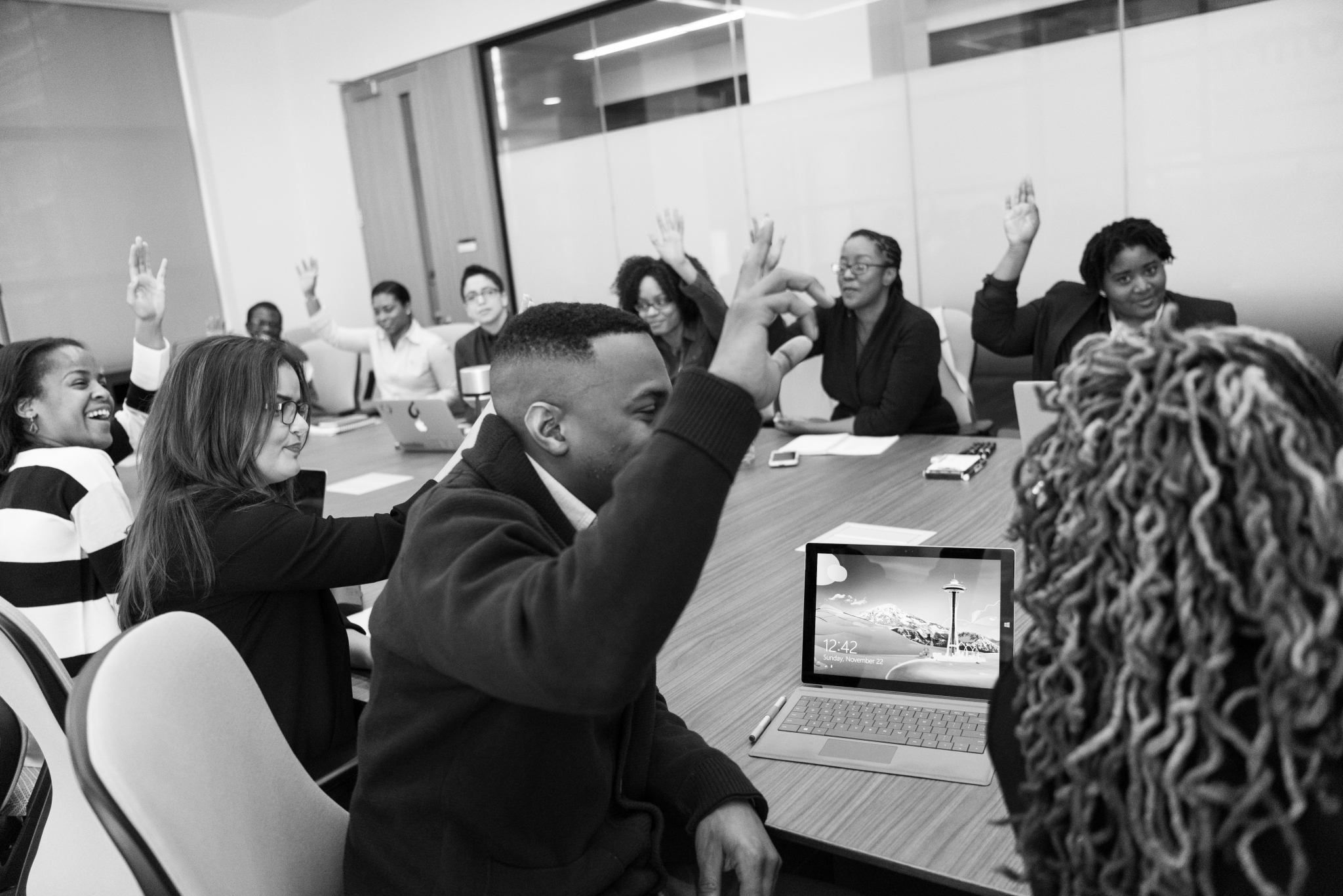The group project. AKA the reason why your grade plummeted from a respectable, sturdy 87 to a humiliating, anxiety-inducing 78. What other than the group project assignment can elicit statements floating around Tumblr and Yik Yak like, “When I die, I want my group members to lower me into my grave, so that they can let me down one last time?”
Although once presented as an opportunity to build community, communication and constructive criticism, the group project ironically induces unnecessary stress in college students. What’s worse, every group project seems more blood boiling and nauseating than the last. We all have our own group project horror stories; I remember slaving away countless mornings until 3 a.m. because no one bothered to do their share in a project worth half our final grade. With this bad rep, why do group projects stand the test of time?
Florida State University senior Jared Armstrong was a sophomore when he was assigned a group project for a literature course. “We…each had to pick a couple of poems about whatever we wanted and then find a way to link them all together,” he said. Just days before the presentation due date, Armstrong’s group gathered to discuss their selection of poems and then create a PowerPoint Presentation. “We all picked regular poems about nature or friendship or love or whatever—except for one particular girl who picked these very vulgar sex poems. We were all a bit thrown off and obviously didn’t want to do that, but she still insisted that we all re-select our poems to match hers.”
That’s when Armstrong and the other group members began to feel uncomfortable. “She started getting mad—one of the other guys in the group even argued with her. After a few minutes of this, she exploded, ranting about how poetry should always be about sex because sex is beautiful, after which she proceeded to take off her shirt—no bra, of course—and asked if anyone wanted to see how beautiful sex and poetry could be together,” he said. According to Armstrong, “nobody was down” for that particular scenario; he said that the owner of the apartment immediately kicked her out and emailed the professor, resulting in an extension on the project.
While not many group project stories live up to that spectacle, FSU sophomore Leighanne Rowland certainly has a story of her own. “One girl was only there for the first meeting, and didn’t contribute to any part of the project. We kept texting her since our workload was super unfair—it was a huge project and we were getting screwed over. In the end, she flat-out told us that she was at a wedding in the Bahamas and couldn’t help,” Rowland said. “The other guy was just high all the time, so me and one other guy did the entire project ourselves, and only put our names on it.”
For those who look forward to putting a close-to-perfect GPA on a grad school application, an unlucky roll of the dice can lead to a project with members who just won’t pull their weight. “I was pissed at how much more effort it took me, and I didn’t get the grade I should have gotten,” said Rowland. “I mean, yeah, the purpose of group projects is to gain communication skills and learn how to work with others. But there are other ways of doing that without jeopardizing your grade.” Rowland pointed out the real concern here—the resulting grade and how it affects our final GPA.
Despite the mounting evidence against the dreaded group project, FSU communications professor Larry Bodkin said, “Most employers believe that the creative synergy caused by group work is essential to success. Therefore, being able to work effectively in groups is a vital and employable skill.” He argued that despite its downfalls, group projects do have merits that are overlooked due to GPA concerns. “Since group work is a real world skill, I use group projects to help prepare my students for these working challenges.”
Put simply, group projects aren’t manufactured settings intended to guide the development of communication skills—rather, they reflect the real world. The people you work with in these projects are the same people you’ll encounter in the workplace.
Are you frustrated with the guy who won’t answer his emails to pick a meeting time? How about the girl whose blank stares and unhelpful comments lengthen your meeting times by 30 minutes? These types of people will show up at your real job one day. Your final project grade will reflect not only how competent you are in the subject matter, but also how well you can overcome these obstacles.
Instead of banging your head against the wall, use your frustrations as a mechanism for success. Realize people will be frustrating in any context, and if it’s not your grade on the line, it will be your job. “There is no magical spell you can cast to make a group function perfectly, just as it is in the real world,” Bodkin said. Maybe, the point isn’t to learn how to communicate effectively, but rather to deal with the harsh reality that some people will never cooperate.
You’ll have to pick up the slack for a coworker who just can’t pull his weight at work. You might even have to critique a coworker about the quality of his work. In the end, the workplace is just as infuriating and nauseating as group projects. However, Bodkin did have a suggestion for limiting some of these frustrations. “Clear, up-front objectives and individual responsibilities set by the group helps to focus the group and hold everyone accountable.”
Patience, my friends, it’s not all downhill from here. When you learn how to deal with these frustrations, you’ll transcend the difficulties that arise within your future career with ease and view the hard workers with more appreciation and respect than ever before. And you know why? Because you had that group project in college.
See Ya Slacker! The Secrets to Surviving Group Work
Written by Nicole Eisenberg, sophomore, University of Maryland, College Park, marketing and finance
Have you ever wondered why professors torture you with group work? “Students benefit from practicing real-world skills that they will need for after graduation,” explained Dr. Elsa Sánchez, professor of Horticulture at Penn State University. Unfortunately, group work is not as easy as simply following the ol’ playground rules of being nice and sharing. So as you prepare for the real world, familiarize yourself with CM’s revised set of standards for successfully collaborating with three or more collegians.
Choosing the Line Leader

Choosing the overseer is frequently the first problem that groups encounter. Oftentimes, having someone volunteer his/ her leadership can be harder than a kindergartener’s trip to the dentist. If you’re lucky, a leader might develop or take charge naturally, but if there is more than one future UN leader in the group, the result might resemble a paste and sand-throwing duel.
Instead, when assigning group projects, professors often want students to think in terms of leadership, rather than leaders, explained Sandor Schuman, program director at the Center for Policy Research at the State University of New York in Albany. Assigning leadership over different aspects of a project, with one person guiding the flow of the group, creates an efficient way to bring a variety of specialties together into one cohesive whole.
“In my group, we delegate tasks based on each group member’s strengths,” said Jessica Filderman, a sophomore at Washington University in St. Louis. This way, everyone gets to participate. Delegating leadership roles ensures that all parties are equally invested in the project. That way, being overseer does not mean doing more work—it simply means guiding the group in the right direction.
Playing Fair

We all know that student, who makes the group experience as difficult as possible by not showing up to meetings, never responding to emails and dishing out excuses like his or her life depends on it. It’s probably the same kid who couldn’t keep his Tamagotchi pet alive.
To make everyone’s job easier, this slacker needs to be reeled in and tamed from the very beginning. If the group has tried assigning this member fewer tasks or has offered to hold the meeting in a more convenient spot to no avail, then hold this group member accountable by asking your professor to provide peer evaluations at the close of your group work. Gettysburg Freshman, Kate Forton, has dealt with a frustrating group member before. “You have to realize that people aren’t going to be compatible or have the same opinions,” she said. Sometimes, this person might just have a different personality than the majority of the group and simply needs to be included in a way that fits his or her individual style.
A student’s slacking may stem from low confidence in the material. One solution is to make these team-members responsible for areas with which they are more familiar. Rather than being anxious about meeting expectations, members will feel comfortable as experts on the material.
Managing Circle Time

Team meetings can be difficult when pooling a group of personalities together. It’s like agreeing on the rules for a game of tag. Ever find your meeting running overtime and getting nowhere? Planning is crucial to keeping your group’s work cohesive. “Know exactly what you want to get accomplished at the meeting, so that you make sure that you do it,” said Filderman.
In other words, organization and preparedness are key. Consider writing up an agenda and emailing it out the night before.
Schuman agreed. “One of the functions of leadership is to clarify, with the group, the desired outcome of a meeting (its ‘purpose’ and ‘product’), who is needed to accomplish that purpose (the ‘people’), and how the group can go about doing its work (the ‘process’),” he said.
When all of these imperative points are clarified, shared expectations can be instilled in the group dynamic. This “enable[s] individuals to participate more effectively because they know what they’re in for, what they can expect to get out of it, and what in particular each person can—and is expected to—contribute,” Schuman explained. In other words, when one kid tags another on the playground and screams, “you’re it,” all parties are well aware of what happens next.
Class Notes on Group Work
- Group work helps you prepare for real world career experiences.
- Instead of selecting a leader, create multiple leadership positions.
- Delegate tasks according to team member strengths.
- Give the slacker less work or request a peer eval.
- Create an agenda for each meeting.
Multiple Group Personalities
In a team setting, naturally you are dealing with a variety of personalities and behaviors from the overachiever to the slacker. For every extreme there are ways to tone it down and become a cooperative team member. Which group personality are you?
*Article updated October 30, 2015 by Nicole Eisenberg to include “See Ya Slacker! The Secrets to Surviving Group Work.”



















